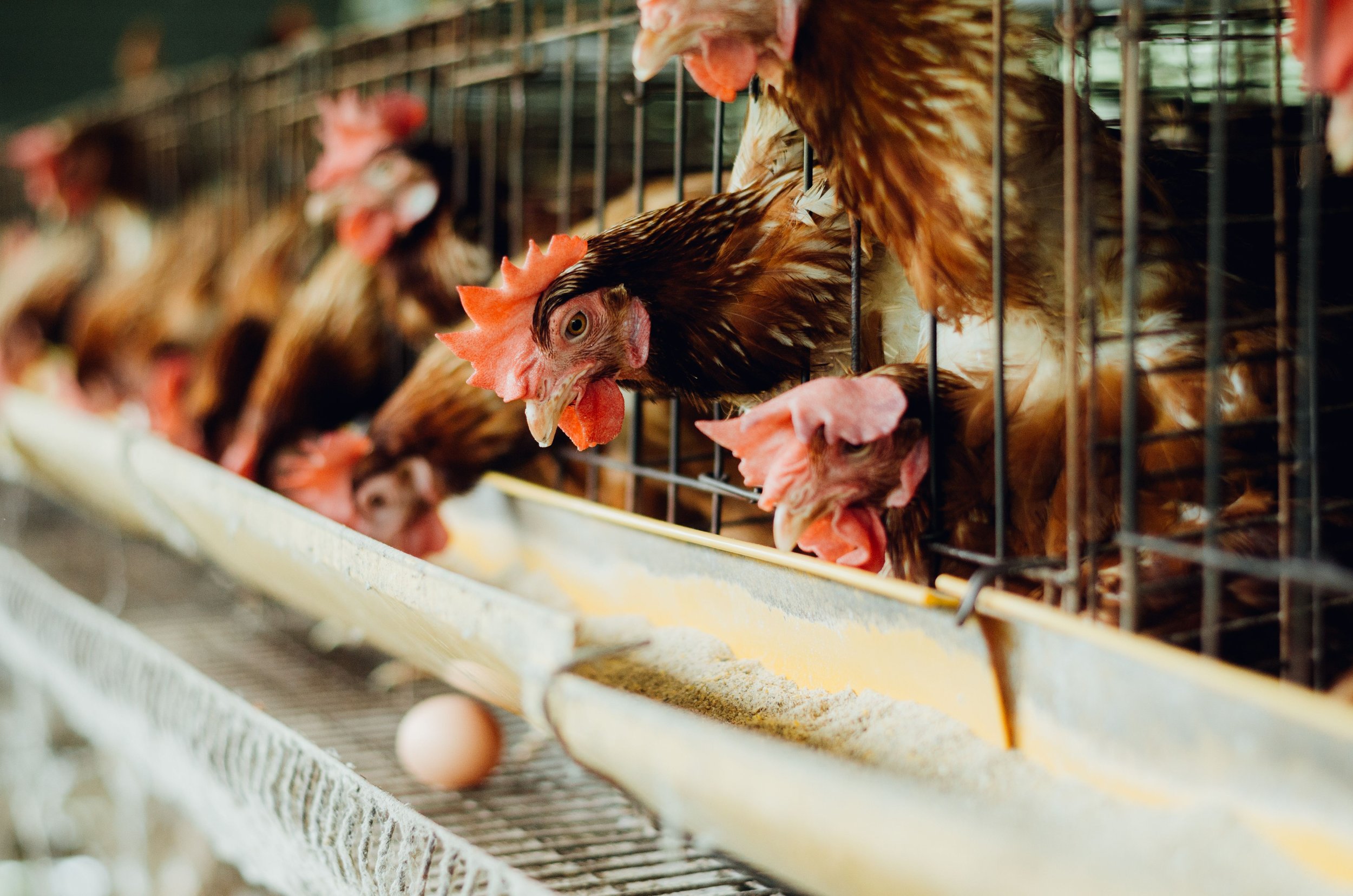Ending the abuse of animals raised for food
What they do and how they do it
The Humane League (THL) works tirelessly to protect millions of chickens from lives of confinement and suffering across six continents.
From here…
..to here!
Through strategic corporate pressure campaigns, THL convinces major food companies to eliminate the worst factory farming practices from their supply chains.
THL leads the Open Wing Alliance, a network of 90+ organizations in 70+ countries, coordinating global efforts to end cage confinement for hens worldwide.
THL campaigns for stronger animal welfare laws that protect millions of animals from cruel confinement and inhumane treatment.
Why support them
THL drives real change for incredibly small amounts of money: Their campaigns have a track record of preventing chickens from being caged for as little as 85 cents per bird. That means a donation of just $25 could help free approximately 29 chickens from cage confinement.
They’re making big gains with the world’s largest corporations: They’ve influenced some of the most powerful companies in our food system, including Walmart, McDonald's, and Nestlé, successfully securing commitments from 2,200+ entities around the globe to better the treatment of animals.
THL is dedicated to helping even more animals: In 2025, THL is looking to make the US 50% cage-free and influence animal welfare policies at both the state and local levels. Their success and momentum are also allowing The Open Wing alliance to launch new initiatives in Africa, Asia and Latin America, areas with some of the least legal protections for farmed animals in the world.
THL has also been the only charity recommended by Animal Charity Evaluators every year for the past decade. You can explore their detailed evaluation here.
Hear from a donor
"I love that The Humane League doesn't just raise awareness - they get real results. Seeing them successfully pressure major companies to eliminate cruel practices gives me confidence that my donations are creating meaningful change."
Diederik Van Rappard
Private investor, board member, FarmKind donor
-
The Humane League’s main programs are:
1. Corporate Pressure Campaigns
THL holds the world’s biggest food companies accountable for inhumane farming practices within their supply chains. They run public pressure campaigns that bring these issues to the attention of the companies' customers and shareholders. This creates the right business incentives for decision-makers to commit to phasing out cruel animal treatment.
THL pressures companies to end practices such as:
Confining egg-laying hens to overcrowded cages where they can never spread their wings
Immobilizing mother pigs in gestation crates where they can barely move or turn around
Raising selectively bred chickens who grow muscle so fast their legs can fracture under their own weight and are often slaughtered while they’re just a few weeks old
2. The Open Wing Alliance
The Humane League not only pressures corporations directly, they also empower 90+ organizations in more 70+ countries to do the same through the Open Wing Alliance (OWA). Launched in 2016, the alliance aims to ban the use of battery cages for laying hens, ensuring they can spread their wings and live more humane lives. Through the alliance, THL provides member organizations with training and a proven playbook to effect change. By working together, these organizations collaborate on a global scale, achieving far more than they could by themselves.
3. Influencing government animal welfare policy
The Humane League advocates for stronger welfare regulations in the US, UK, and Mexico, and supports and coordinates the state-level efforts of 15 other US organizations through their Animal Policy Alliance. Policies they pursue include:
Bans on veal crates, where baby cows are confined to produce more tender meat
Bans on importing horses for human consumption
Bans on confining chickens to cages
Mandatory humane slaughter practices for farmed fish
* It becomes difficult for them to even stand up and often their legs fracture under their own weight. These breeds often lose most of their feathers, pecked off by other stressed hens or by themselves in an effort to cool down. Chickens can easily live for 5 years, but these extremely fast-growing breeds are slaughtered while they’re still babies, after just ~6 weeks
-
THL leads the Open Wing Alliance, a global network of 90+ partners in over 70 countries across six continents, putting an end to the abuse of chickens worldwide.
THL and the Open Wing Alliance have convinced 2,200+companies (and counting) to enact welfare policies to reduce inhumane practices and allow countless animals to live better lives. Commitments have come from massive companies such as General Mills, PepsiCo, Kellogg’s, CVS, Hershey, Oreo, Unilever, Starbucks, Subway, Burger King, KFC, Pizza Hut, Taco Bell, Dunkin’, Chipotle, HelloFresh, Whole Foods, Aldi, Walmart, Walgreens, and more.
In the US, THL has helped to increased the proportion of cage-free egg-laying hens from 10% to 40% over the past decade, helping to liberate 100+ million hens from restrictive battery cages.*
Fast-growing broiler chickens (whose rapid growth can lead to lameness, organ failure, and other painful complications) are being phased out by 185+ companies thanks to THL’s Better Chicken Commitment (BCC).
THL supported the passage of California's Proposition 12 – called the most progressive animal protection law in history – which has reduced suffering for an estimated 37 million animals.
Through grassroots activism, THL has mobilized thousands of individuals to send 1.1+ million messages to decision-makers about improving the treatment of trillions of animals worldwide.
* We can’t give 100% of the credit for this progress to THL but they played a pivotal role in it













